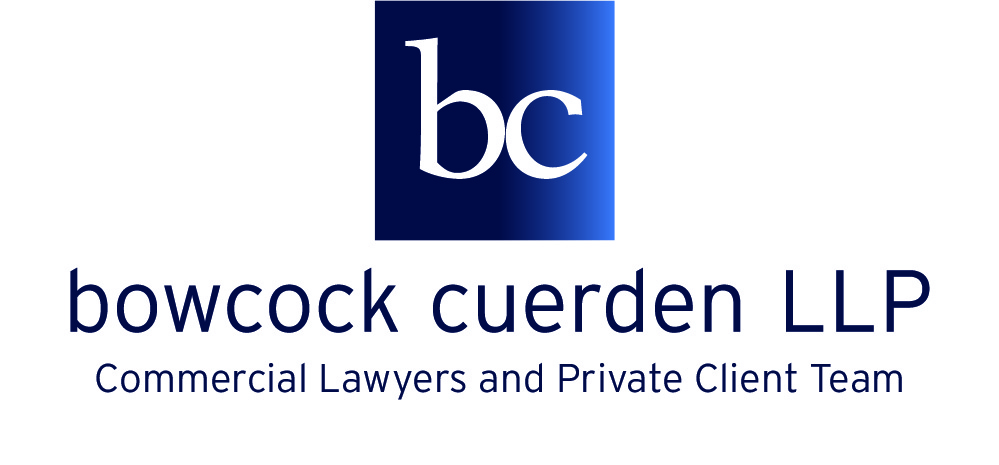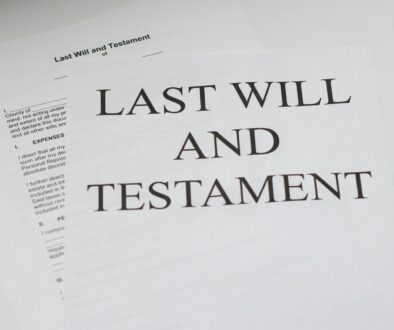Testamentary Capacity and the decision in Goss-Custard v Templeman & Ors
The High court has ruled on a matter relating to the estate of renowned former Court of Appeal Judge, Lord Templeman. Following his death in 2014, Lord Templeman’s younger son Michael and his wife Lesley claimed that he lacked testamentary capacity when he executed his final will in 2008.
If Lord Templeman did not have testamentary capacity when he executed the 2008 will, the effect was that his final will was the one he made in 2001, subject to a 2004 codicil. The main difference between the two wills related to the house (called Mellowstone) in which Lord Templeman had lived with his second wife, Sheila, until his death in 2014. Sheila died in June 2008 and under the terms of her will, left Mellowstone to Lord Templeman outright.
Under the 2001 will and 2004 codicil, in the event that Sheila had died before him (as she did) and left Mellowstone to him, Lord Templeman left £20,000 free of tax to each of his six grandchildren and £120,000 free of tax to Sheila’s residuary beneficiaries. Any greater value of Mellowstone would revert to Lord Templeman’s residuary estate which he left to his two sons from his first marriage, Peter and Michael.
However, In his 2008 Will, Lord Templeman left Mellowstone to Sheila’s step-daughters from her previous marriage, Jane Goss-Custard and Sarah Edworthy. He left no legacies to his grandchildren or to Sheila’s residuary beneficiaries and his entire residuary estate, other than some modest gifts, was left to Peter and Michael in equal shares.
Michael and his wife Lesley argued that Lord Templeman did not have testamentary capacity when he made the 2008 Will. This was contested by Jane and Sarah. A question was raised as to whether Lord Templeman had forgotten the arrangements he had made in his 2001 will with regard to Mellowstone when he made the will in 2008. If he hadn’t remembered, had he been acting under a mistaken belief with regard to Mellowstone when he made the 2008 will.
It was accepted that Lord Templeman had started to suffer from short-term memory loss from 2006 which gradually deteriorated until his death. Expert evidence attributed this to Alzheimer’s disease although Lord Templeman had never been diagnosed with or treated for this during his lifetime.
Testamentary Capacity
The law on testamentary capacity is set out in the 1869 case of Banks v Goodfellow, which requires that a testator:
- understands the nature of the will and its effects;
- understands the extent of the property of which he is disposing;
- understands and appreciates the claims to which he ought to give effect; and
- is not affected by any disorder of the mind that influences his will in disposing of his property.
It was accepted that Lord Templeman was hit hard by the loss of Sheila, but within a month he was able to fly to Canada on his own and visited cousins in Nova Scotia. Following his return to England, Lord Templeman met with David Merrick, a solicitor from Crosse + Crosse and gave instructions for the 2008 will. In his notes, Mr Merrick commented that Lord Templeman’s “thinking and logic about the Estate seemed faultless.” Establishing lack of testamentary capacity when a will has been prepared by an experienced legal professional can be difficult (but not necessarily impossible).
In cases in 1975 and 1977, case Lord Templeman himself had established the so-called “Golden Rule” which is regarded as best practice for solicitors preparing wills for elderly or seriously ill testators: the solicitor should arrange for a medical practitioner who has satisfied himself as to the testator’s capacity and understanding to witness or approve the will, and record and preserve his examination and findings. Somewhat ironically, the Golden Rule was not followed by Mr Merrick. The fact that Lord Templeman did not insist on a medical examination was put forward as evidence of his lack of capacity by Michael and Lesley. This was dismissed by the Judge who attributed it to the fact that people who give out good advice don’t always follow it themselves or don’t think they need it.
Findings
The court found that there was no clear evidence to suggest that Lord Templeman’s capacity in 2008 was unduly affected by the problems he had with his short-term memory. No expert evidence of lack of capacity was presented. The only expert witness (called by Jane and Sarah) testified that there was a relatively high degree of probability that Lord Templeman did have testamentary capacity in 2008.
The notion that a will cannot be valid unless the testator is aware of the terms of his existing or previous wills, or has to mind the reasons for the underlying gifts in them was rejected. A testator does not have to be able to justify to himself a difference between a previous will and a new will, even if there were particular reasons for the terms of the previous will.
The court did not agree that Lord Templeman was acting under a mistaken belief that a wrong had been done to Jane and Sarah. It found that Lord Templeman had wanted the house to remain in Sheila’s family out of the love and affection he had felt for Jane and Sarah. Lord Templeman may have forgotten about the 2004 codicil and the reasons for its terms, and mistakenly thought that he had not addressed what was to be done with Mellowstone, but that was a simple mistake attributable to poor memory and not to a lack of testamentary capacity.
It was concluded that Lord Templeman was able to understand and appreciate those who had an interest in his estate and was not acting under any delusion that had poisoned his mind, and that he therefore had testamentary capacity at the time he made the 2008 will.




